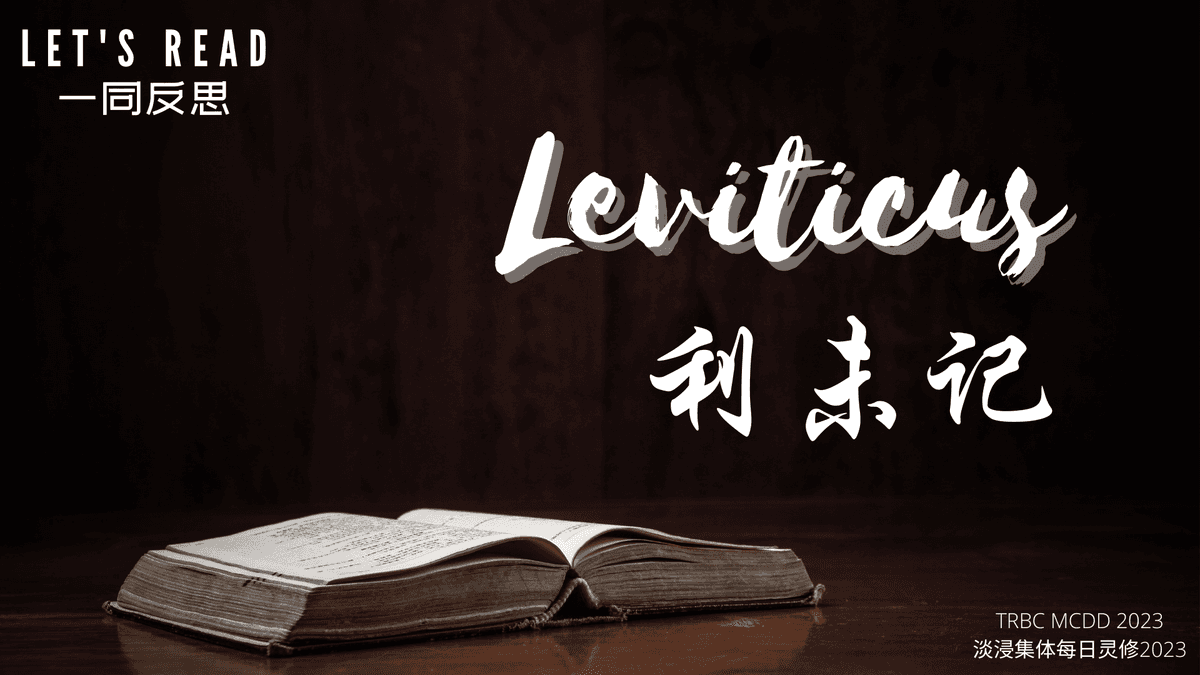Last 5 Days

Grain Offering, an offering of submission

Click here to read Leviticus 2
The book of Leviticus sets for the people of God a journey towards holiness. In the covenant that He has made with His chosen people, our Holy God expects His people to be Holy and to set themselves apart for Him. In Exodus 19:6, we are called to be a kingdom of priest and a holy nation. In this covenant, God graced us with a fellowship between God and man, and as part of the covenant, God wants us to respond by walking before Him and be perfect (Gen 17:1). It is not a means to salvation, but a response to salvation. The book of Leviticus teaches men how to walk before God and be Holy as He is Holy.
Leviticus opens with instructions about how the three commonest types of OT sacrifices are to be performed. Chapter 1 deals with burnt offerings, chapter 2 with grain offerings and chapter 3 with peace offerings. They are grouped together because all these sacrifices constitute a voluntary food offering with a pleasing aroma to the Lord (v2,9,12). This offering, unlike the burnt and peace offering, is not an animal sacrifice, but in grain form. It is also unlike the burnt offering in that only a handful of the sacrifice was burned in the fire, the rest being given to the priests to eat, whereas in the burnt offering everything except the skin was burned.
Flour and oil were the principal ingredients of the grain offering. The flour could be cooked or uncooked, and three ways of cooking the bread are detailed. It could be baked in an oven (v4), or cooked on a griddle (a flat plate used like a frying pan but with very little oil) (v5) or cooked in a pan, fried (v7). At harvest time a special kind of grain offering was encouraged, of roast or ground meal (v14). Salt had to be added to every cereal offering: this point is specifically stressed, being put three different ways in v13. A pinch of incense were also usually added to grain offerings (v2,15-16), but yeast and honey were prohibited (Exo 23:18, 34:25).
The Hebrew word for grain offering is minhah, which often meant tribute, the money paid by a vassal king to his overlord as a mark of his continuing good will and faithfulness. It may simply mean “a present”. The grain offering was a gift by the worshipper to God. It was an act of dedication and consecration to God as Saviour and covenant King, It expresses not only thankfulness but obedience and a willingness to keep the law. It is repeated often in a worshipper’s lifetime as man’s sinful nature requires that he repeatedly seek divine forgiveness and that he renew his dedication to God and his covenant vows. The grain offering is an act of dedicating a man’s life and work to God, where he is reminded regularly that Yahweh is his Lord and God, and that he is willing to submit wholeheartedly to this King. In a society where most people were farmers, this was a fitting symbol of thanks for God’s faithful provision.
Dear brothers and sisters, though we no longer make grain offering to God in our current context, what do we do to offer the same dedication to His Lordship and act of submission unto Him as the act of our worship? Romans 12:1-2 appeals to us to present our bodies as a living sacrifice, holy and acceptable to God. Paul calls us not to conformed to this world, but be transformed by the renewal of your mind, that by testing you may discern what is the will of God, what is good and acceptable and perfect. This requires our hearts and minds to be aligned daily to the teaching of Jesus. We ought o ask ourselves these questions in the tasks we do. “Jesus, how would you have made this decision I am going to do?” or “Jesus, what can I do today that will be acceptable and pleasing to you?” or “Jesus, who would you like me to be a blessing today to someone?”
Our alignment to Christ in our daily decisions reminds us who truly is Lord in our lives. It is a sacrifice because more often than not, our Christ-centred decisions will often be countercultural and requires us to give up our own ideology to embrace His. The bible tells us that our desire to be following Jesus wholeheartedly is a pleasing aroma to the Lord. Dear brothers and sisters, how can you offer yourself as a living sacrifice today in your own walk with Him?
Prayer: Dear God, it is so much easier to go with the flow base on what the world tells us, but would you help me to be different today? Help me to not conform to the patterns of this world, but be transformed by the renewal of my mind and to seek to make decisions that are pleasing and acceptable to you. Help me dear God! In Jesus name, amen.
